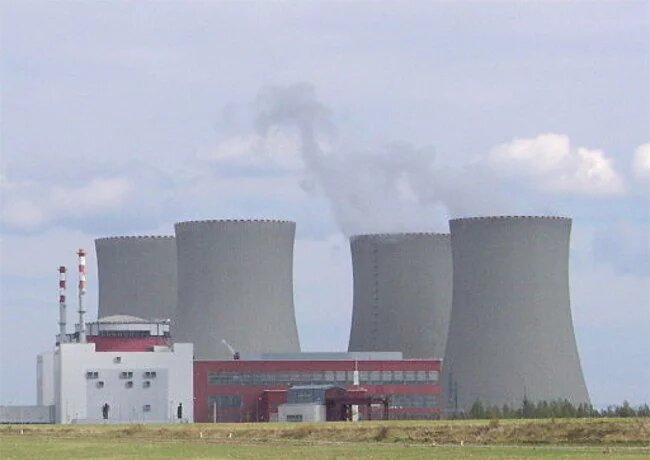
A more progressive programme declaration with atomic limits
The new government: it doesn’t hurt to make a promise?
Surprisingly, the government’s new programme promises an interesting transformation of the Czech energy sector. A large portion of the chapter on industry is devoted to helping industry reduce its demand for energy in production. Attention is also once again focused on energy-saving renovations of buildings.
Support for energy-saving renovations is precisely the area which evokes the least controversy, and therefore it can be expected that even politicians will express interest in it. Indeed, they have a well-worn path here since the establishment of the Green Savings programme by the Green Party in 2009, which managed to implement investments of more than CZK 20 billion from the sale of emissions permits to Japan precisely for the “thermal insulation” of homes.
The possibilities of insulating homes, changing windows and installing other useful technologies can cut domestic consumption in heating by half. Energy savings in homes are the easiest way for the government to support construction – it would create up to 35,000 jobs. Another advantage is reducing the state’s energy dependence on Russian natural gas, the overwhelming majority of which is used here in heating. For now, ministers are merely talking about wanting to create a “massive programme” of energy savings in homes. In order for them to truly succeed, however, they will need to invest around CZK 12 billion annually. Whether they obtain the resources will demonstrate how seriously they take their declarations.
But as we know in the Czech Republic, the government does not hurt anyone by making a promise, and it may never come to fruition. At the same time, politicians have had other huge options for increasing energy efficiency calculated by experts since 2008, but they are letting them lie fallow. This is the area of support for reducing consumption in industry, which is the best way to improve the position of Czech enterprises on international markets. Indeed, despite support provided – e.g. through European funds – Czech industry still has greater energy demands than industry in advanced European countries. While this is a result of the country’s historical orientation towards metallurgy and steelworks, it is nevertheless possible to increase the energy efficiency of Czech industrial enterprises by up to one quarter by employing modern technologies. More efficient production can save billions of crowns annually, improve the competitiveness of domestic industry and contribute to a significant reduction in greenhouse gas emissions.
The negative renewables campaign and the unclear future of nuclear
Renewable sources constitute a separate chapter in the Czech Republic. After their initial euphoric adoption, there has appeared an extremely negative campaign against the use of local economical sources. It part, this is based on justified reservations over their failed regulation; mostly, however, it is motivated by fear of new competition on the part of large coal and energy companies. At least on paper, the new government is promising a return to a reasonable renewal of support for renewable sources. The programme declaration mentions support for rooftop solar generation and for biogas stations connected to the use of waste from agricultural production. If the government manages to renew interest in investments in green energy, this will be a significant step forward. Also of key importance, however, is for the government to return stability to already built renewable sources. Especially investors in solar energy must wrestle with a retrogressive change in guaranteed conditions – in the past, the so-called solar levy reduced their incomes by a whole 26%, and this year it will apply “merely” to the most widespread installations of photovoltaic generation from 2010 in the amount of 10%.
There is still no clarity on the question of nuclear energy. The Ministry of Industry in cooperation with ČEZ has long pressed for the expansion of the Temelín Nuclear Power Plant by two additional reactors. In the new draft State Energy Plan, it wants to strengthen the share of atomic energy to 51% by 2040. These nuclear plans, however, constitute a departure from economic and geopolitical reality. Politicians are beginning to suspect that the project will not go through without support – for example on the basis of the British model of compensatory fees on the price of electricity. Now, the acute situation in Ukraine has intervened in the announced tender, and will probably eliminate one of the bidders for good – Rosatom.
The decision on building additional reactors will show what the new government has in mind for the Czech Republic. It should thus find the courage to halt the entire project, and it would be best to have the entire energy plan reworked. It has not undertaken to do this in its programme declaration, however.
The Czech Republic on the side-lines of the European debate
The first serious test of the firmness of the government’s plans in the programme declaration is the current debate over new EU obligations to reduce air pollution and to increase the share of economical sources for the period from 2020 to 2030.
Unfortunately, the Czech government refuses to support the obligation for further growth in renewable sources – this despite the fact that any share for the Czech Republic would correspond to the very conservative figures in the draft State Energy Plan. The government has even begun to consider pressing for a lower emissions reduction obligation – just 35% by 2030. This posture suggests that the position of the new government will probably again closely follow the lobbying efforts of big industry, ČEZ and other large energy companies.
The governing politicians should realise very quickly, however, that copying the position of the industrial lobby will impede households from achieving energy efficient and thus also financially economical living.
Martin Sedlák, Alliance for Energy Independence